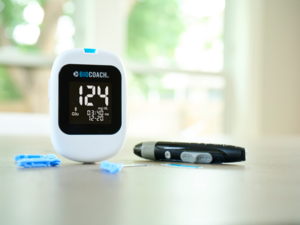
Diabetes care was completely transformed in the 1980s when Genentech found a way to manufacture synthetic insulin.
Now Minneapolis-based DiaMedica Therapeutics Inc. is aiming to do the same thing to treat strokes, using proteins found in urine.
DiaMedica CEO Rick Pauls said a protein known as KLK1 has been isolated from pig pancreases and human urine to treat millions of people in Japan and China. Until now, the ability to synthesize the protein was out of reach to Western pharmaceuticals that have tried, such as Bayer AG, Amgen Inc. and Takeda Pharmaceutical Co.
That was until DiaMedica developed its synthetic version called DM199. In September, the Minneapolis-based company received fast-track authorization from the Food and Drug Administration to expedite the time it takes to get the drug to market.
"By being the first to figure out how to manufacture an active synthetic form of this protein, we now have a version to bring to the West, U.S. and Europe," Pauls said.
DiaMedica now is enrolling patients for a clinical study taking place across 10 sites that will conclude in early 2024.
If the trial is a success and DiaMedica is able to commercialize DM199, it will change how strokes are treated and improve patient outcomes.
Right now, of the 800,000 people in the U.S. who experience a stroke, 80% of these patients don't have a treatment option outside of supportive care. Those who do have a treatment option have to rely on Alteplase, which dissolves the clot. However, it must be administered within three hours of a stroke occurring.
The DM199 therapy has a 24-hour treatment window.
"With this larger treatment window, basically most patients can get to the hospital and get a therapy," Pauls said. "We think it will really make a difference in terms of improving their recoveries and reducing that risk of reoccurrence."
To further the company's development, earlier this year it appointed Dominic Cundari as chief commercial officer and named Dr. Kirsten Gruis as chief medical officer.
Pauls said Gruis will bring experience in neurology to explain how the drug works, and its importance, to patients. Meanwhile, Cundari will position the company as it prepares for a product launch, Pauls said.
Outside of treating strokes, DiaMedica is exploring ways to use the protein to treat kidney disease. It's just completing a phase-two clinical trial in treating kidney disease.
Numerous Minnesota-based companies have put the state on the map for building medical devices, but DiaMedica is in a small niche of pharmaceutical players in the region. Pauls said over time that number will grow, but the companies in the space aren't well-known, yet.







